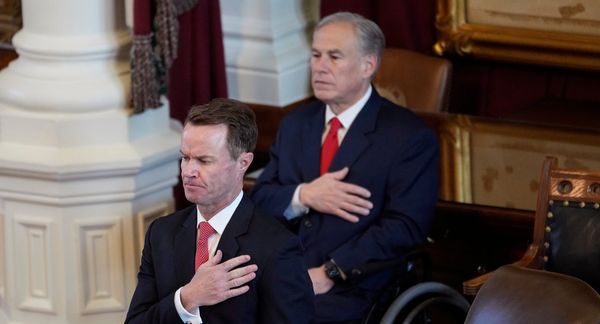If you're praying for the bulls, you'd better be rooting for the Rams.
Sports fans are known to be a rather superstitious bunch with many diehards swearing by a lucky cap, color, number or behavior.
Some will make sure to sit in the same chair or watch a game in the same bar or restaurant. There are those who will skip shaving and others who will eat certain foods before or during a game. Or maybe they won't eat at all.
The Super Bowl Indicator
Superstitions will be out in full force for Sunday's Super Bowl as the Los Angeles Rams take on the Cincinnati Bengals.
As one person on Twitter noted, a "superstition is only stupid if it doesn't work."
The Super Bowl Indicator is a sports-related superstition skewed toward the stock market.
First observed by in 1978 by Leonard Koppett, a sportswriter for The New York Times, the Super Bowl Indicator suggests that the market will be greatly affected depending on whether the NFC or AFC wins the big game.
If the NFC team wins, the belief goes, the stocks will rise for a full year. However, if the AFC team take the trophy, then stocks will fall.
And for a while there, the Super Bowl Indicator looked pretty solid. Between 1967 and 2003, it proved true 68% of the time.
But the belief took some serious hits when a series of AFC teams beat their NFC rivals through the 2004-07 economic growth spurt.
However, the indicator bounced back when the 2008 NFC win ushered in a boom year.
So going by that logic--and we're using the word very loosely--traders should be hoping for the Rams to crush the Bengals.
Now at first glance, investing and superstitions would seem to be polar opposites.
After all, the stock market relies on research, knowledge and experience, while superstition is all about broken mirrors, black cats and spilled table salt.
Feeding the Pigeons
But not so fast. Researchers at Wharton Business School found that many theories of market volatility have little to do with reality.
Jessica Wachter, a financial management professor, said in a 2020 interview that “there’s no question that investors are superstitious."
Wachter's study went back to work in the late 1940s by American psychologist B. F. Skinner that showed how pigeons developed bizarre habits of behavior when presented food at regular intervals.
Research since then has shown that the pigeons’ behavior “illustrates a tendency to create structure out of randomness.”
In addition, the report said that there is "a strong tendency to find structure where none exists characterizes human subjects as well, both in the laboratory and real-world situations."
This tendency persists, the report said "even when subjects are trained to know what is random and what is not."
Wachler cited fears connected with Friday the 13th as an example of “how people like to put order on things that are essentially unpredictable.”
But, hey, it's only a game, right? Maybe you should just put on your lucky cap, sit in your lucky chair and enjoy yourself.
"There are plenty of myths and hoary old tales that dominate investing, but unless you are trading on a specific day then the impact should be limited, said Chris Beauchamp, chief market analyst with IG. "Apart from the most active traders, for the average trader, these superstitions are mostly for entertainment, and shouldn’t have any real impact on trading.”







